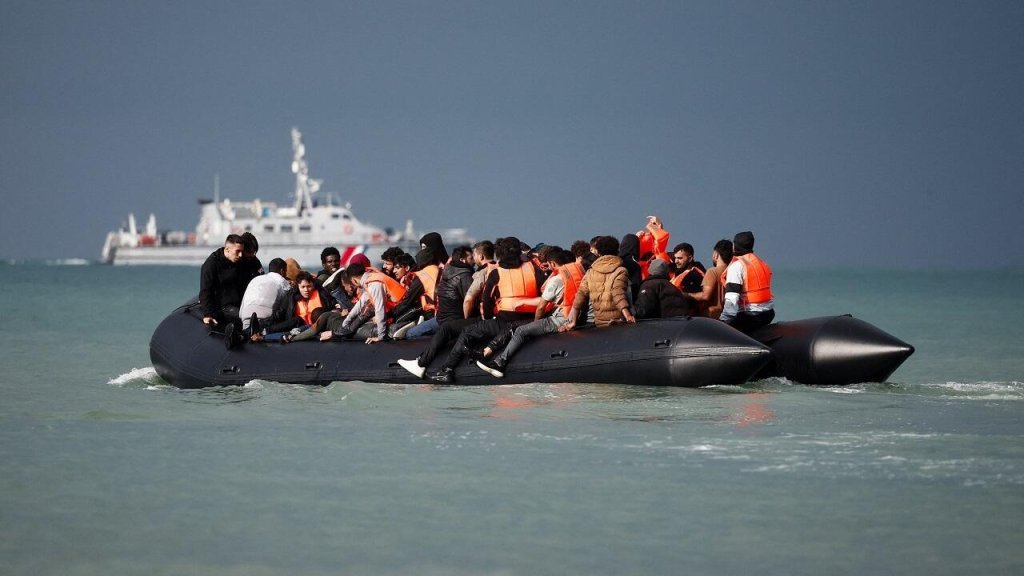France is considering changing its policy and intercepting migrant boats at sea to respond to the increase in Channel crossings. These operations are currently impossible because the law of the sea prohibits French police from operating at sea, except for rescue operations.
France will present a new plan to intercept migrants at sea as an answer to irregular immigration from the French coast to the United Kingdom. The plan aims to counter the "boat taxi" phenomenon, a technique that involves launching the boat before boarding to avoid land interceptions by the police.
This technique makes it difficult for law enforcement to intercept crossings, as maritime law prohibits French police from intervening at sea except to conduct rescue operations.
"Despite tireless efforts being carried out on French territory to reduce the number of cross-Channel crossings, there has been a 42 percent increase in the number of individuals arriving in the United Kingdom compared to 2024," a source at the Ministry of the Interior said a few days after 1,195 migrants reached the United Kingdom aboard 19 boats. This is a single-day arrival high unmatched since 2022.
"We are aware of the high stakes involved in maritime interventions and the need to adapt our operational strategy," the same source stated. Thus, France will "develop" its current system "to be able to operate in shallow waters, up to 300 meters from the coast, and thus intercept boat taxis, while respecting the principles of the United Nations Convention on the Law of the Sea."
Dangerous practice
This practice is prohibited by maritime law because it can be dangerous. In December 2023, the Saint-Omer public prosecutor expressed reservations about sea interceptions to InfoMigrants. "The prefect gave extremely clear instructions to law enforcement to never endanger the lives of migrants," he said.
In 2021, Priti Patel, then British Home Secretary, had already discussed the implementation of operations at sea. But this project was quickly abandoned following France's refusal to carry out practices that violate maritime law. At the time, the project was also criticized by NGOs, who believed it would push migrants to take even more dangerous routes.
But the French and British governments' desire to strengthen border control could well put an end to this rule, which has been in place for several years. Last February, Interior Minister Bruno Retailleau -- who announced additional police personnel and the construction of the Dunkirk migrant detention center -- was already talking about this change in policy.

"We need to review our organization within the first 300 meters of the coastal strip so that we can board these boats when they arrive to pick up the migrants. We should probably plan for the gendarmerie to be able to intervene," Retailleau said.
Meanwhile, the British Home Secretary Yvette Cooper expressed exasperation after Monday's record arrival. Pictures showing French police looking at migrants departing from the beach without intervening also provoked anger from the British side. The UK Home Secretary called for greater efforts from the French, and she is hoping that France will intercept boats not only in shallow waters when they leave the beaches, but also in rivers and inland waterways.
This new plan is expected "by the summer," the Interior Ministry said. The French President is expected in the United Kingdom from July 8-10 for a state visit.
Read Also"I have flashbacks of the incident," survivor of deadly boat accident in English Channel
Crossings on the rise
Despite repressive measures implemented by London and Paris to curb irregular immigration, 14,808 people have arrived in the country since January 2025 via the Channel. This is an unprecedented level.
These irregular crossings increased sharply last year, with 36,800 people crossing, 23 percent more than in 2023 -- that year registered a record low.
And they are increasingly deadly. Since the beginning of the year, at least 15 people have died. Last year, 78 migrants lost their lives in the Channel, a new high.
